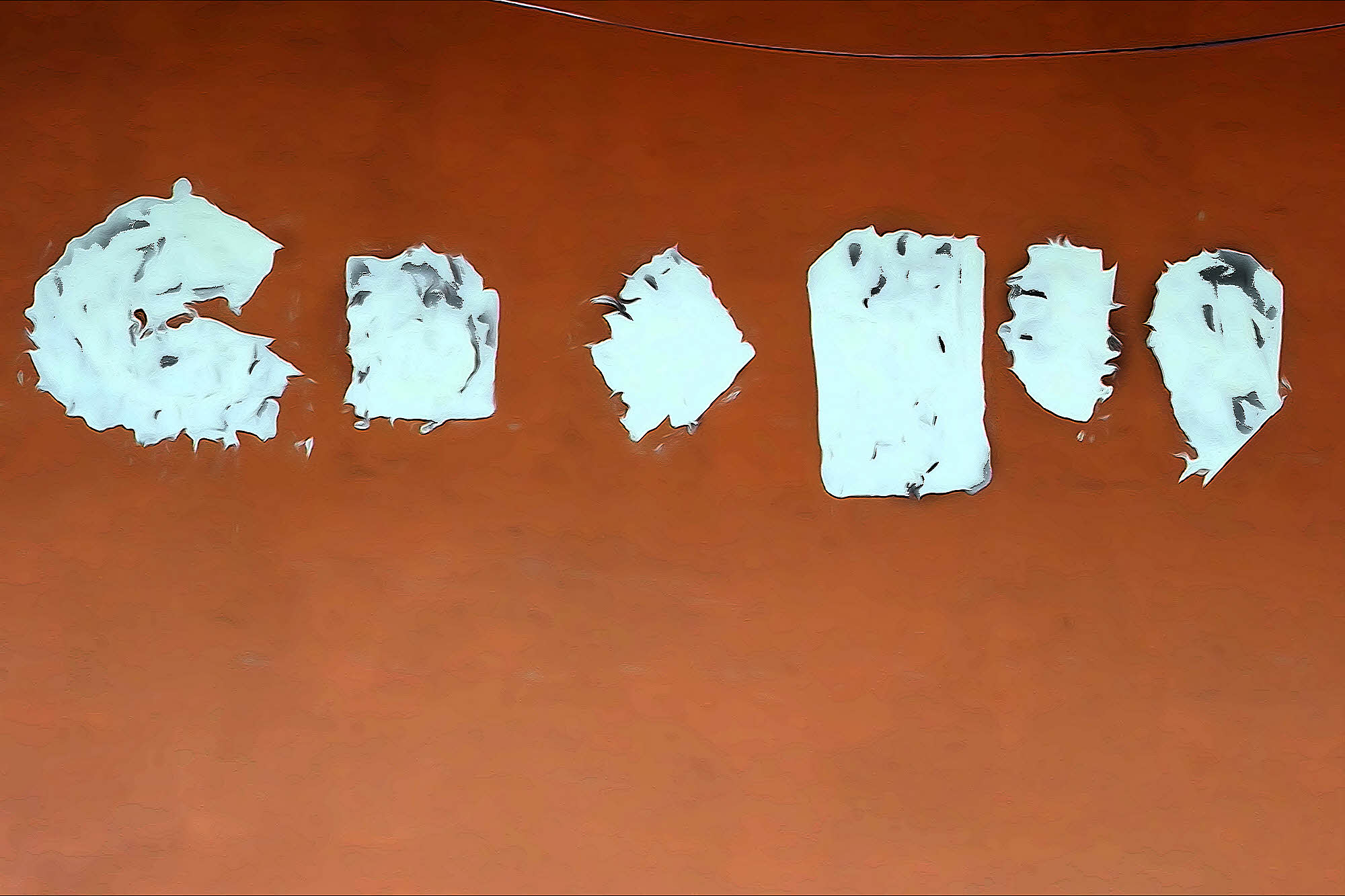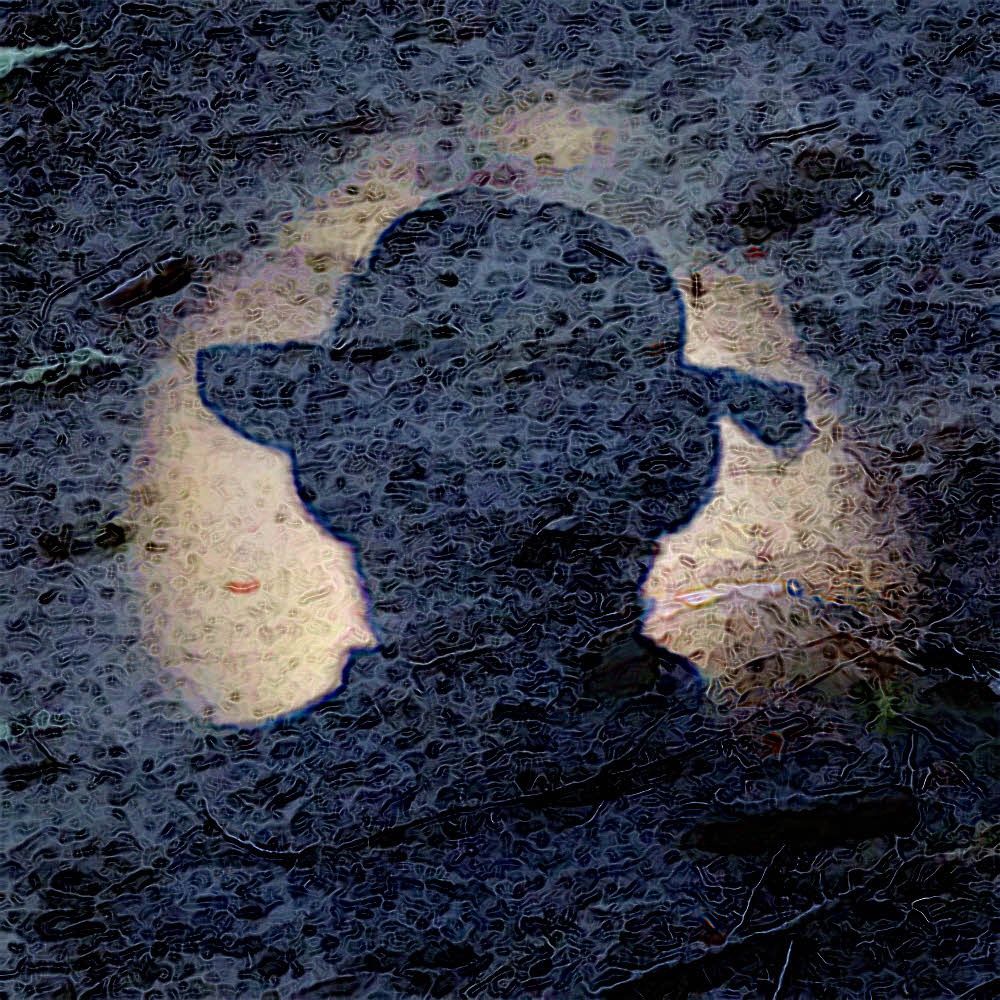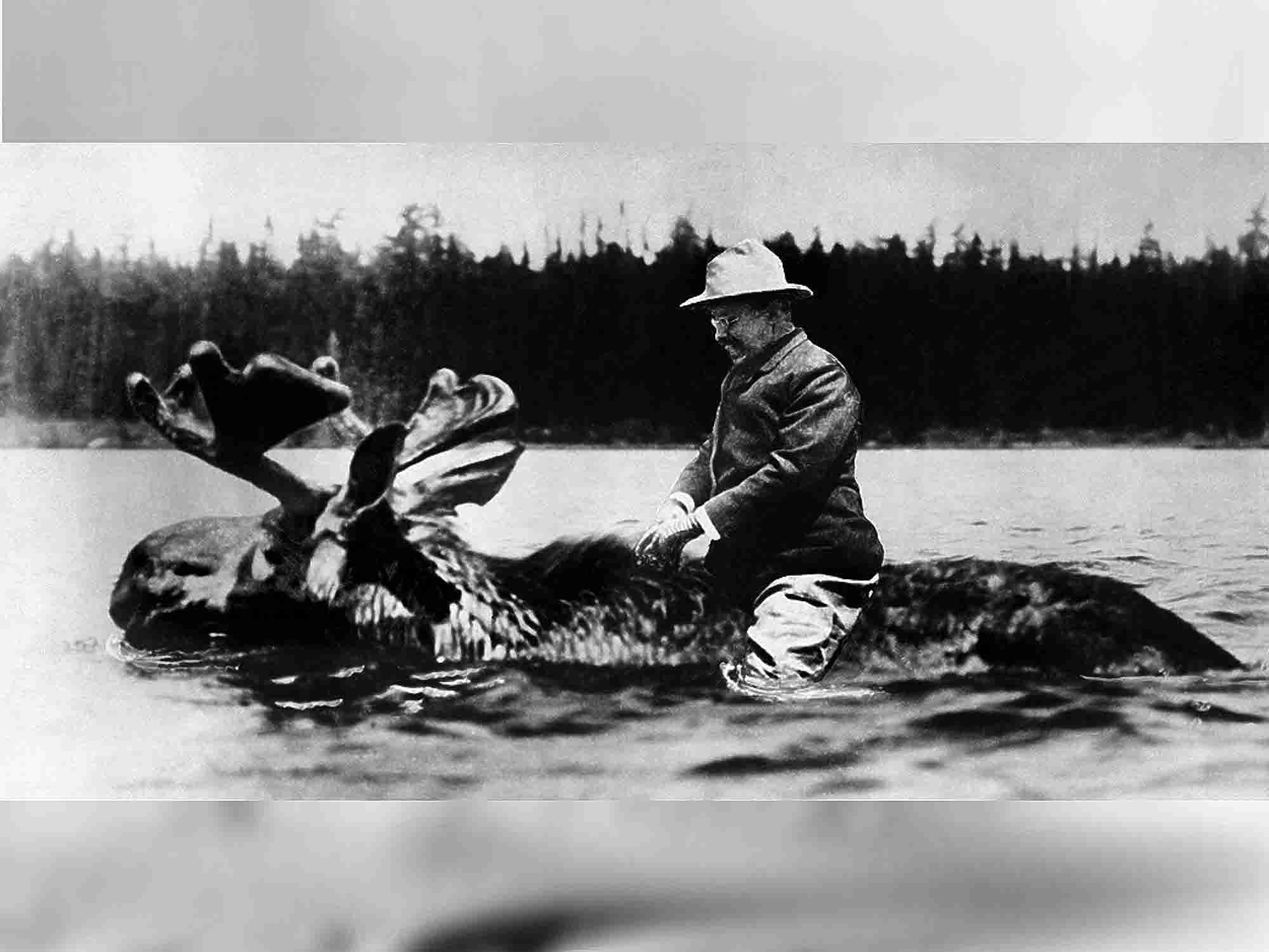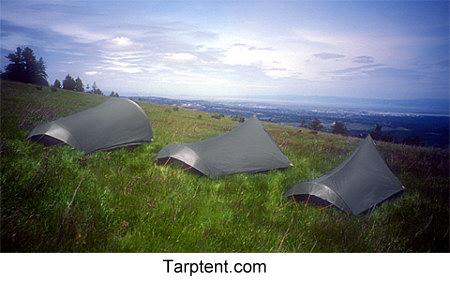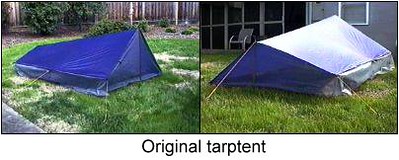Trail Shung, And Fwei Too.
By Pat
As you know if you are attuned to Shung Fwei, this is the Year of the Flaming Weasel. What does this mean for prosperous and harmonious backpacking? If anything?
Well, I am here to tell you, being a Certified Practitioner of the Ancient Art of Shung Fwei, holder of a Third-Degree Purple Belt (with tassels), and what I say is "Kung Hei Fat Boy! May you have blister free walking now!"
Armed with my frequently-updated analysis of what the Heavenly Energies have in store for us, and having been recently moved out of a very successful marketing career with assistant duties in purse sales, I think I can say I know what you need as a backpacker. In fact, it is so obvious that anyone should be able to tell, just by a glance in your general direction, or a quick throw of the sticks.
For example, focusing on individual animal signs, with one eye on what the Flaming Weasel is up to these days, it is clear that the next 12 months will be good for those born under the signs of the Chipmunk, Manatee, Sidehill Gouger, Hoedad, Chub-Chub, or Moo-Cow. I mean, obvious, right? Everyone knows that.
On the other hand, if you are a Rabbit, Sheep, Monkey, Ox, Doofus, Dik-Dik, or Dildo, then you may well see some challenging times coming your way. But again, how surprising should that be?
Your Shung Fwei Chart fully illustrates each detail of this and should have alerted you by now. If you don't have a personalized Shung Fwei Chart yet, just drop by, OK? We will soon get you beyond any seductive negativity, into a curing regime of self-enhancement, by preparing a Chart. I also offer family discounts, so stop by soon.
Of the five elements (Water, Wood, Fire, Earth, and Metal), we need to decide which is most relevant in the area of backpacks and backpacking. Note that there is no Nylon Ripstop Element, no Spectra or Dyneema, no Cordura, not even a hint of Ballistic Cloth or even a Canvas Element to be found anywhere in the above list.
Do not be dismayed.
At first you may feel distressed, but this is why you need a Certified Practitioner of the Ancient Art of Shung Fwei, for whom everything impossibly confusing is actually trivial. The Elements have come to us from ancient times, when there was not even the dream of Silnylon, let alone Cuben Fiber, but the fundamental principles still do apply. These principles tell us that what your backpack is made of (or even its size, weight, and style) is truly much less important than its color.
For example, Brown is friendly, rich, and grounded, like dirt, or poop (which belongs on the ground), right?
Blue may be the color of water and peace, but it is also the color of adventure and exploration.
Green of course represents life, growing energy, and a mellow, organic high.
And let's not forget Gray. Gray is the color of security, reliability, and durability. Durability is important in a backpack, don't you think? I do, sometimes.
You may surmise that if you weld together a backpack from thick Metal plates, then it will be durable, but not if it is Pink. Pink is the color of love, baby girls, feminine allure, and slumber parties, not backpacks. Pink will defeat all backpacking attempts unless you are a genuinely girly girl. Is this you?
Likewise, White.
White represents marriage, peace, union, and translucent draperies.
So White is then a timely but sad reminder if you are in sore need of new draperies, or have just seen your marriage crash and burn. Your seemingly invincible White welded Metal pack would then feel depressingly heavy and would not serve your needs well at all. It would only bum you out.
Or say your pack was Silver. Well, trustworthiness is not bad, and that is a quality of the Silver color, but do you need romance, glamor, a high tech feel, or a dreamlike experience on the trail? Probably not, especially if you are watching out for snakes.
We Certified Practitioners of the Ancient Art of Shung Fwei are aware of these subtleties and can be of great service for an actually nominal fee, if averaged out over your hiking lifetime, may it be long, as it will be if you keep your monthly payments up to date.
Recently in a relaxing, pre-event dinner attended by many other energetic Practitioners, Yours Truly enjoyed the company of similarly Highly Accomplished Individuals who also straddle the worlds of Shung Fwei and backpacking, just as Myself does. This should be a hint. After dinner was the event, an exposition on the Primary Element for the Year of the Flaming Weasel.
That Element is Metal.
Back to Metal we go! Could you guess?
How surprising is that? Not!
Of all the five elements, Metal is by far the most important this year because the Flaming Weasel is both a natural force and a dangerous one, as you know if one has ever run through camp and into your tent.
The Flaming Weasel's most serious characteristics (the flames, of course, but also its teeth and claws) are inflicted on the Earth element, so necessary to support your backpacking, but they are also significant hazards to the Wood element, not to mention your tent, no matter how precisely it is aligned with the Force. And then there is the skin of your face and arms to think about.
A good way to ensure protection against such afflictions this year is first, as noted, to choose a pack of the proper color. The proper color serves to deflect weasels of all kinds, not just the flaming ones, and does not even require batteries to work. This should be a strong hint right there.
Beyond color, ensure the proper balance of Elements. For your pack, and luckily for you, only one is needed: Metal.
But it does not have to be Heavy Metal, or even Middle Metal, though for maximum self-defense purposes a bar of solid iron is always handy to carry, such as a two foot length of re-bar. But for a pack, no, do this instead: Guarantee that your pack contains sufficient quantities of Metal in a Propitious Surrounding Configuration, and this does not need to be heavy at all.
Vain hikers often try using jewelry or decorative chains strung here and there, but jewelry is ineffective on most trails, not being specifically designed for backpacking, and looks cheap as well, and may clash with your outfit.
It is much better to lightly coat your new pack with an all-organic adhesive and then sprinkle liberally with pure powered aluminum. Or to save money, use boob glitter.
Both of these deflect sunlight, in effect symbolically protecting you from both the Heat of the Sun, and the Hairy Eye of the Flaming Weasel. Because of my divinations deep into the Shung Fwei Esotery (nothing of which I am allowed to share here, so sorry), I have determined that actual Metal is not in fact even necessary as long as the appearance of Metal is maintained.
Thus the suggestion about boob glitter, which is not, as is often thought, even Metal, though it appears so, which is good enough. And it is much less costly. Besides, who even knows what they're putting into aluminum these days anyway?
As in so many aspects of life, appearances are all that really matter, which gets us right back to color, so you may be beginning to get a feel for circular reasoning, the very foundation of Shung Fwei, and why we Certified Practitioners of the Ancient Art of Shung Fwei need to charge what we do.
So, this is all to the good but Metal is only one third of the story. The other two parts are, as in most endeavors, entirely Luck.
Luck comes in two flavors, Heavenly Luck and Mankind Luck.
Heavenly Luck is often the only thing you have to save the place where your tail resides, when you otherwise have no hope at all, so try to stay on the good side of Heaven if you value your tail, and the place it grows from.
Unlike Heavenly Luck though, Mankind Luck comes to individuals who work hard at enhancing their true Fwei-Nature, by constant practice, by doing good deeds, by hard work, by learning and using proper food hanging techniques, and by paying consulting fees on time to their Certified Practitioners of the Ancient Art of Shung Fwei.
Slight cheating is also acceptable in certain circumstances, but never with regard to the invoice.
Beyond all that, get a decent pack from an established company, keep it clean and in good repair, and as always, try before you buy. Keep your receipt.
Other services I provide include in-home or online consultations, corporate seminars, laying on of hands, Shung Fwei slumber parties, gift certificates, marital, investment, and fashion advice, real estate sales, and upbeat, tear-free no-cry funerals.
To receive a free Shung Fwei Tips Brochure, just think good thoughts. Need a website designed? I do that too. Also house-sitting and dog walking, day or night. Just whistle. (Two long and one short. I'll come running.)
One of the stories from Bag on your back.
See tabs at the top for definitions and books.
Have anything worth adding? Then try sosayseff+eff@gmail.com
Me? Trying to get this geomancy thing working.
